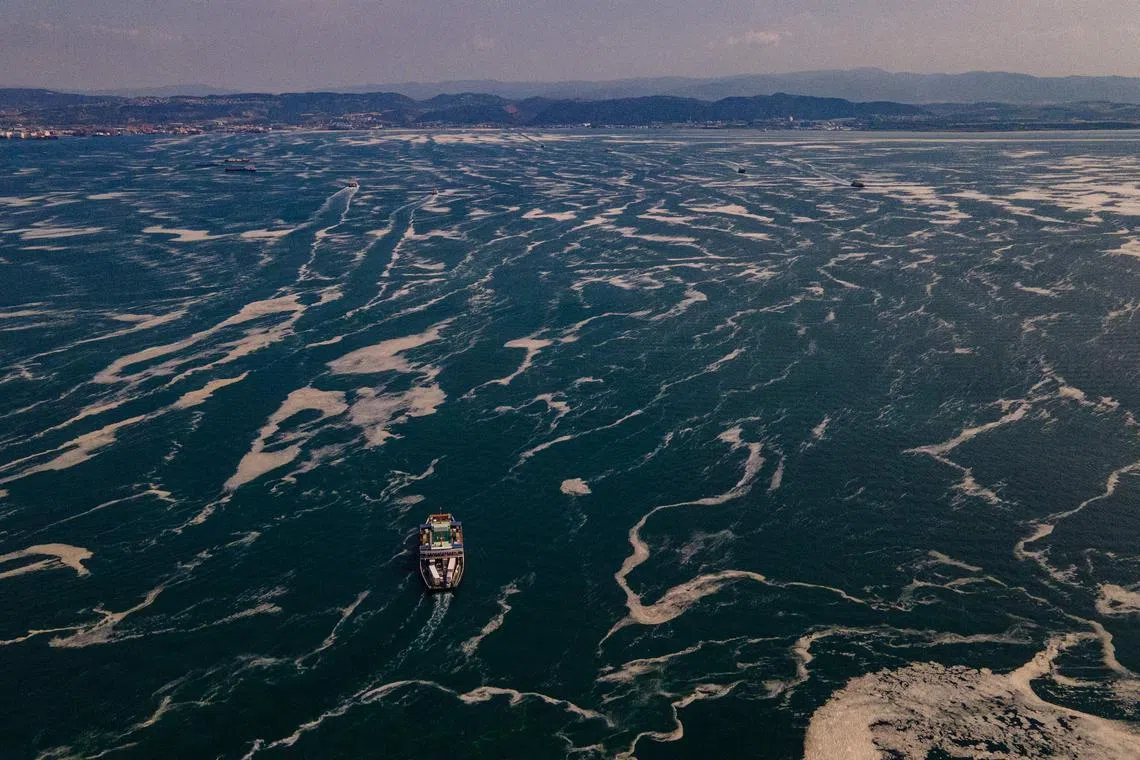For subscribers
Tide turning as spotlight falls on oceans’ climate role
Sign up now: Get ST's newsletters delivered to your inbox

Rising temperatures and increased acidity could reduce the oceans’ effectiveness as a carbon sink.
PHOTO: AFP
SINGAPORE - Covering 70 per cent of the earth’s surface, oceans play a crucial role in slowing the pace of climate change, absorbing about 30 per cent of the world’s carbon dioxide (CO2) emissions.
But all that CO2 – 67 billion tonnes were absorbed by the oceans from just 1992 to 2018 – is taking its toll on the oceans, causing rising acidity, depletion of oxygen levels and rising temperatures that are damaging reefs and other marine life and, in turn, the livelihoods of people dependent on marine and coastal diversity.


